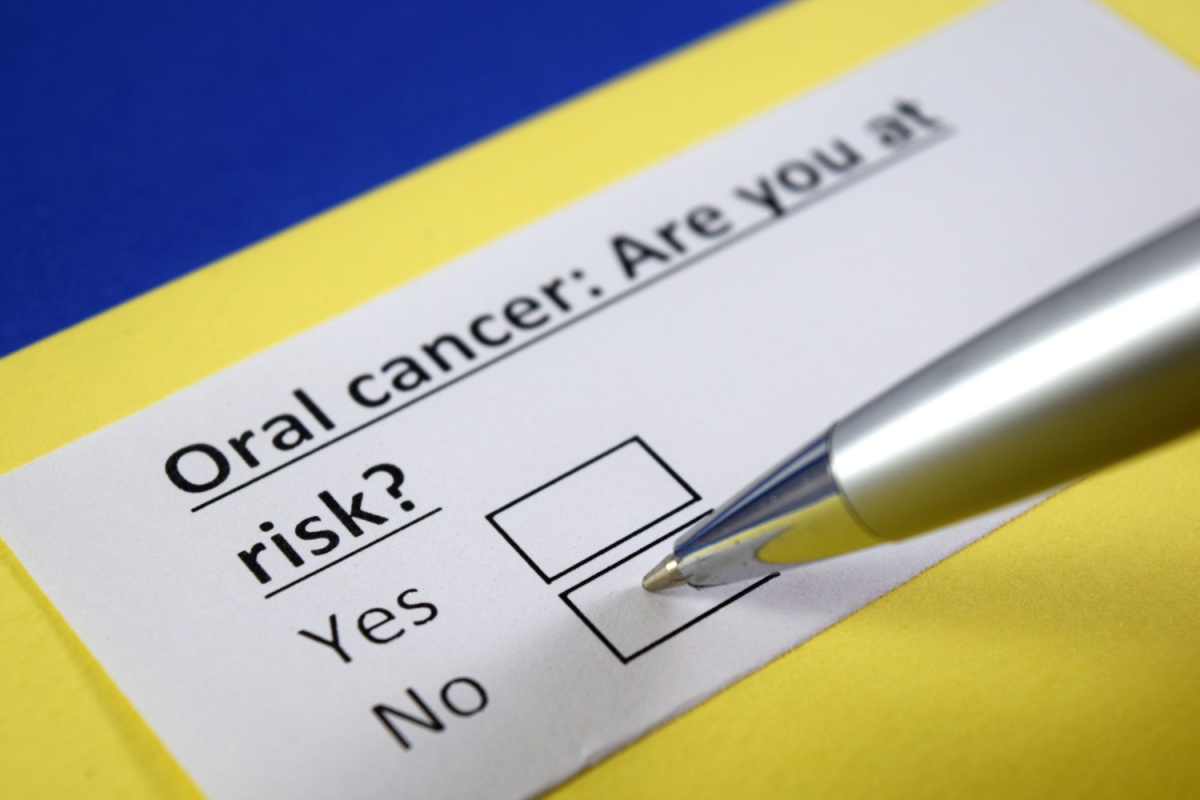When we think about cancer prevention, our minds often jump to avoiding tobacco, limiting alcohol consumption, and maintaining a healthy diet. But have you ever considered the role your oral hygiene plays in cancer risk? Recent studies have shed light on a startling connection between poor oral hygiene and various types of cancer, particularly those affecting the mouth and throat. As your trusted partners in adult and pediatric dental care, Hamilton Dental Associates is here to explore this crucial topic and help you understand why taking care of your teeth and gums is more important than ever.
The Oral Health-Cancer Connection: More Than Just a Coincidence
It may seem far-fetched at first glance, but the question, “can bad oral hygiene lead to cancer?” is one that researchers have been investigating with increasing interest. And the findings are eye-opening. While it’s important to note that bad oral hygiene doesn’t directly cause cancer, there’s growing evidence of a strong correlation between poor oral health and an increased risk of developing certain types of cancer, particularly oral cancers and throat cancers.
Understanding Oral Cancers
Before we explore the connection further, let’s clarify what we mean by oral cancers. These include cancers of the oral cavity and oropharyngeal cancer, which affect areas such as the lips, tongue, cheeks, floor of the mouth, hard and soft palate, sinuses, and throat. Oral cavity and oropharyngeal cancers can be life-threatening if not detected and treated early.
The Role of Oral Hygiene in Cancer Risk
So, how exactly does poor oral hygiene potentially increase cancer risk? The answer lies in the complex relationship between the bacteria in our mouths, inflammation, and our body’s immune response.
Our mouths are home to a diverse ecosystem of microorganisms known as the oral microbiome. Good oral hygiene helps maintain a healthy balance of these microbes. However, poor oral hygiene can disrupt this balance, leading to an overgrowth of potentially harmful bacteria. This overgrowth can lead to various oral diseases, including gum disease (periodontal disease) and dental cavities (tooth decay). Research suggests that some of these bacteria may also produce substances with carcinogenic potential, which could contribute to the development of cancer over time.
Chronic inflammation can also play a role in the development of oral cancer. Once it begins, gum disease and other inflammatory conditions don’t just stay limited to your mouth. They can lead to systemic inflammation throughout the body, potentially weakening the immune system and creating an environment more conducive to cancer development. This systemic effect might explain why poor oral health has been linked not only to oral cancers but also to other types of cancer.
The Research: What Studies Tell Us
Numerous studies have explored the link between oral hygiene and cancer risk. While more research is needed to fully understand the connection, the findings so far are compelling:
Case-Control Studies
Several case-control studies have found that individuals with poor oral hygiene, as indicated by factors such as missing teeth, infrequent dental visits, and periodontal diseases, had a higher risk of developing oral and oropharyngeal cancers compared to control subjects with good oral health.
Longitudinal Research
Longitudinal studies following large groups of people over time have also found associations between poor oral health indicators (such as tooth loss and periodontal disease) and an increased risk of various cancers, including those of the mouth, throat, and even other parts of the body.
Biological Mechanisms
Researchers have proposed several biological mechanisms that could explain the link between oral health and cancer. These include the potential for oral bacteria to produce carcinogenic compounds, the role of chronic inflammation in cancer development, and the possibility that poor oral health may be a marker for other cancer risk factors.
Other Risk Factors for Oral and Throat Cancers
While oral hygiene plays a significant role, it’s important to recognize other major risk factors for mouth and throat cancers:
Tobacco and Alcohol Use
Tobacco use, including smoking and chewing tobacco, remains one of the most significant risk factors for oral cancers. Alcohol consumption, especially heavy drinking, also increases risk. The combination of tobacco and alcohol use has a synergistic effect, multiplying the risk substantially.
Human Papillomavirus (HPV)
Oral HPV infection, particularly with high-risk strains, is a growing risk factor for oropharyngeal cancers. Regular dental check-ups can help detect early signs of HPV-related changes in the mouth and throat.
Family History and Genetics
A family history of oral or throat cancer can increase an individual’s risk. While we can’t change our genetics, understanding our family history can help us take proactive steps in prevention and early detection.
Maintaining Good Oral Hygiene: Your First Line of Defense
Given the potential link between oral health and cancer risk, maintaining good oral hygiene is more crucial than ever. Plus, oral health is integral to our overall well-being. Poor oral health has been associated with various other health issues, including cardiovascular disease, diabetes, and respiratory infections.
By taking care of our mouths, we’re taking care of our entire bodies. Here are some key habits to incorporate into your daily routine:
Brush and Floss Regularly
Brush your teeth at least twice a day with fluoride toothpaste and floss daily to remove plaque and food particles that can lead to bacterial overgrowth.
Regular Dental Check-ups
Schedule regular dental visits for professional cleanings and check-ups. Your dentist can detect early signs of oral diseases and provide appropriate treatment.
Maintain a Healthy Lifestyle
To support your oral and overall health, adopt a well-balanced diet rich in fruits and vegetables, limit alcohol consumption, and avoid tobacco products.
Stay Hydrated
Drinking plenty of water helps maintain saliva flow, essential for neutralizing acids and washing away bacteria in the mouth.
Be Aware of Symptoms
Pay attention to any changes in your mouth, such as persistent sores, swelling, or difficulty swallowing, and promptly report them to your dentist or doctor.
Keep Your Mouth Healthy for the Long Haul!
While the relationship between poor oral hygiene and cancer is complex and still being studied, the evidence suggests that maintaining good oral health may play a role in reducing cancer risk, particularly for oral and throat cancers. So don’t let poor oral hygiene put your health at risk. Take control of your oral health today and potentially reduce your risk of serious diseases, including cancer.
At Hamilton Dental Associates, we’re committed to helping you achieve and maintain optimal oral health with our dental services in Princeton, NJ, and the nearby Central New Jersey areas. Our team of experienced dentists and hygienists is here to provide you with top-notch care, from routine cleanings to advanced treatments. Call us now to schedule your next dental visit, and let’s work together to keep your smile bright, your mouth healthy, and your overall well-being in check. Remember, a healthy mouth is a gateway to a healthier you!







